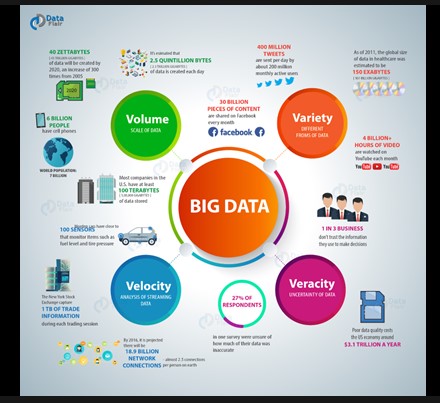Big data is a valuable asset for businesses, but it can also be overwhelming and difficult to manage effectively. Effective data management is essential to make the most of big data and gain insights that can inform business decisions. This article explores best practices for effective data management to maximize the potential of big data.
What is Effective Data Management?
Effective data management involves the processes and technologies used to collect, store, process, and analyze data. It involves ensuring the accuracy, completeness, consistency, and security of data to make it useful for business purposes.
Best Practices for Effective Data Management
Data Governance
Data governance involves establishing policies and procedures for data management, including data quality standards, access controls, and data privacy regulations. It ensures that data is managed consistently and efficiently across the organization.
Data Quality
Data quality is critical for effective data management. It involves ensuring that data is accurate, complete, and consistent. This includes identifying and resolving data errors and inconsistencies.
Data Integration
Data integration involves combining data from multiple sources into a single, unified view. It allows organizations to gain a comprehensive understanding of their data and make more informed decisions.
Data Security
Data security involves protecting data from unauthorized access, use, disclosure, or destruction. This includes implementing access controls, encryption, and other security measures to protect data.
Data Analysis
Data analysis involves using analytical tools and techniques to gain insights from data. This includes identifying patterns, trends, and relationships in data to inform business decisions.
Benefits of Effective Data Management
Better Business Decision Making
Effective data management provides businesses with accurate and reliable data, allowing them to make better-informed decisions.
Improved Efficiency
Effective data management can streamline processes and reduce the time and resources required for data management.
Cost Savings
Effective data management can help businesses avoid costly errors and make more efficient use of resources.
Challenges of Effective Data Management
Cost
Effective data management can be costly, requiring investment in technology, personnel, and training.
Complexity
Effective data management can be complex, requiring expertise in data management, security, and analysis.
Integration
Data integration can be a challenge, particularly when data is stored in disparate systems with different formats.
Conclusion
Effective data management is essential to make the most of big data and gain insights that can inform business decisions. While there are challenges associated with effective data management, these can be overcome with proper planning and investment. By following best practices for effective data management, businesses can improve decision-making, streamline processes, and save costs.
FAQs
- What is effective data management? Effective data management involves the processes and technologies used to collect, store, process, and analyze data. It involves ensuring the accuracy, completeness, consistency, and security of data to make it useful for business purposes.
- What are the best practices for effective data management? Best practices for effective data management include data governance, data quality, data integration, data security, and data analysis.
- What are the benefits of effective data management? The benefits of effective data management include better business decision-making, improved efficiency, and cost savings.
- What are the challenges of effective data management? The challenges of effective data management include cost, complexity, and integration.
- How can businesses overcome the challenges of effective data management? Businesses can overcome the challenges of effective data management by investing in technology, personnel, and training, and by following best practices for data management.
Read More :
- Big Data for Social Good : How Data Analytics is Making a Positive Impact on Society
- Big Data and Marketing: Understanding Customer Behavior for Better Campaigns
- Big Data in Finance : Predictive Analytics for Better Investment Strategies
- Unlocking the Power of Big Data : A Guide for Businesses
- The Future of Big Data: Trends and Predictions for 2023 and Beyond
